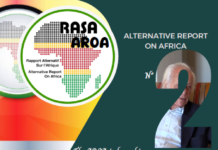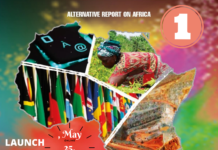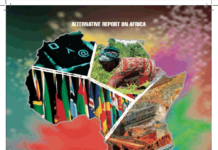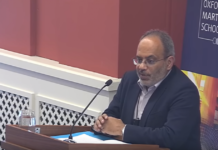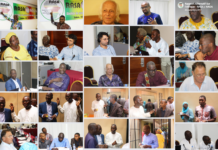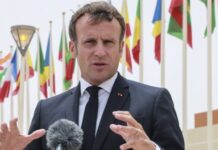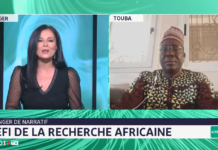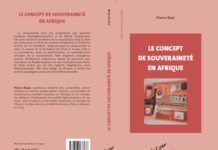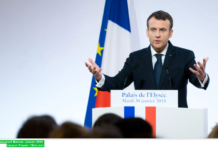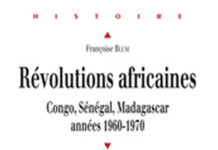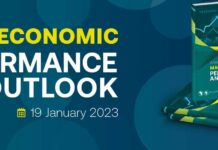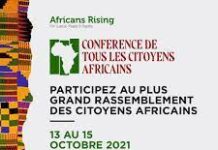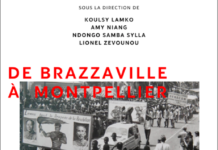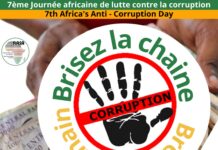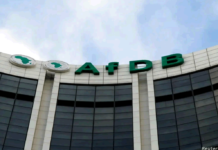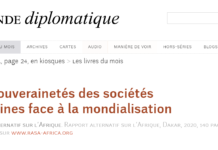24 December 2020
This article is also available in English on the Geopolitical Studies Group website.
One might think, after reading the opening paragraphs of Macron’s recent interview in Le Grand Continent, that a French Corbyn is in power. He condemns the Washington Consensus, the paradigm that calls for ‘reduction of the share of the state, privatisations, structural reforms, opening up of economies through trade, financialisation of our economies, with a rather monolithic logic based on profit-making’. The « financialised economy », the monstrous child of the Washington Consensus which promised us prosperity but only gave power to financiers, destroyed the environment, increased inequality and fuelled authoritarianism, bringing us to a political breaking point.
The Macron Doctrine, or Paris Consensus, is committed to reversing these trends. To combat the ills of the financialised economy, the Macron Doctrine proposes a three-pillar solution: more Europe, a genuine Europe-Africa partnership, and coalitions with governments and non-state actors. On paper, the Macron doctrine breaks with the colonial tradition. It calls for the reinvention of the « Afro-European axis » and requires Europeans to « show that this universalism we carry is not a universalism of dominance, which was that of colonisation, but of friends and partners ». The Macron doctrine calls for Europe to become « the first educational, health, digital and green power » with massive investments, and by extension it promises a partnership with Africa that breaks with colonialism as well as with financialisation.
Yet, paradoxically, the Macron doctrine – explicitly based on a critique of financialisation and the privatisation of public goods – coexists with the French push for the Wall Street Consensus, which promotes a partnership with global investors to financialise development and privatise public goods, particularly in Africa.
The Wall Street Consensus
Over the past decade, the G20, the IMF, the World Bank and other multilateral development banks (including the African Development Bank), and national development agencies (including the French Development Agency, AFD) have pursued a new development agenda centred on a grand bargain with private finance: the Wall Street Consensus. Its logic is powerful. The global glut of financial asset portfolios – the trillions managed by institutional investors, mainly from the North – could finance sustainable development goals, given the assumption of limited public resources in the South. For example, the World Bank’s ‘Maximising Finance for Development’ programme, introduced in 2017, promises institutional investors markets of a potential $12 trillion in social, health, infrastructure, transport and education sectors. But institutional investors are subject to specific investment rules that must be taken into account if they are to finance development. The urgent question for development then becomes: how to « accompany » institutional investors (pension funds, insurance companies, investment funds) and their asset managers towards these opportunities?
The most obvious answer is the following. Investors could buy more government bonds issued by African countries – in their own currency, to avoid the well-known problems of external debt sustainability. These countries in turn would use these cheaper financing conditions to invest heavily in education, digital, health and ‘green’ public services, as our champion of the Euro-African axis envisages for Europe. But this is not the right answer.
Instead, private investors want ‘bankable’ development projects.
The Wall Street Consensus is a plan to reduce direct public investment and the provision of public services and transfer them to the private sector. The Washington Consensus privatisation agenda has changed in appearance, but the substance remains the same: citizens pay user fees for public services, which are now built and delivered through public-private partnerships (PPPs).
DANIELA GABOR AND NDONGO SAMBA SYLLA
« When considering whether a project will attract investors, the first thing multilateral development banks should ask is: ‘Will people pay to use it?’ Investors are much more confident of returns when projects include a set of users who are willing to pay.1 » This logic, well described by the Inter-American Development Bank, is echoed by all other multilateral development banks. It indicates that the Wall Street Consensus is a project to reduce direct public investment and the provision of public services and transfer them to the private sector. The packaging of the Washington Consensus privatisation agenda has changed, but the substance remains the same: citizens pay user fees for public services, now built and delivered through public-private partnerships (PPPs).
But the ambition of the Wall Street Consensus goes beyond a Thatcherite wave of privatisation. Rather, it is to transform the state so that its sole function is to neutralise the risks (derisk) associated with the investments of global financiers. When citizens cannot afford to pay for privatised services, the state steps in and compensates investors, and assumes the risks inherent in development projects so that investors receive a steady cash flow. A bankable project is one in which the state is committed to providing investors with such safety nets.
The ongoing pandemic has given new political impetus to this ambition. This is how the Global Investors Alliance for Sustainable Development, working under the auspices of the United Nations, set out its vision for the response to the pandemic in its July 2020 manifesto: « A challenge of this magnitude requires us to strengthen public-private partnerships to a degree not seen since the Second World War – and a degree perhaps not seen in peacetime. Similarly, the UN Climate Change Conference (COP26), which focuses on private finance, calls for « tailored solutions » for developing countries, including « public-private partnerships, cost-effective project pipelines and new market structures to facilitate commercially viable opportunities for sustainable investment ».
The World Bank is thus preaching the « PPP imperative » to Africa, and the current crisis, it seems, has only made it more urgent.
The Afro-European axis: fiscal time bombs
Public-private partnerships are long-term contractual agreements in which the private sector commits itself to financing and managing public services – hospitals, highways, renewable energy plants, student housing, pipelines and sewers, etc. – as long as the state shares the risks. – As long as the state shares the risk. For governments, this is an attractive arrangement because they do not need to advance the funds. States with large infrastructure deficits and limited public resources, the usual argument goes, could delegate the performance of public service tasks to the private sector without increasing their debt. States must assume some of the risks – i.e. neutralise the risks associated with these investments – but such commitments do not count as public expenditure until the risks materialise.
In France, public-private partnerships have been denounced for years, including by the Court of Auditors2 , for costing more than direct public investment, increasing poverty and inequality of access. The French Senate called them « budgetary time bombs », and the European Court of Auditors joined in.
In France, public-private partnerships have been denounced for years, including by the Court of Auditors, for costing more than direct public investment, increasing poverty and inequality of access.
DANIELA GABOR AND NDONGO SAMBA SYLLA
However, all these warnings have not slowed down the French government’s zeal to defend these partnerships in Africa. For example, the « France-World Bank Initiative », promoted by the French Development Agency and its network of financial partners in the franc zone countries in Africa, places these same partnerships at the heart of efforts to revive the declining French economic presence in the former French colonies and to extend it to the rest of Africa.
The vision of ‘development as derisking’, embedded in the rhetoric of the Afro-European axis coalitions, traps African states and their citizens in the monolithic logic of subsidising the profits of European companies and asset managers.
Firstly, in those African countries that resort to it, this strategy risks increasing sovereign debt in foreign currency. Take the toll motorway between Dakar, the capital of Senegal, and the new airport (also financed by a public-private partnership). Its management was awarded under a 30-year public-private partnership contract to the French group Eiffage. 137 million directly from the African Development Bank and France (via the French Development Agency, AFD) « to provide the investment subsidy » to Eiffage and to finance the restructuring of the urban areas concerned and the relocation of inhabitants.
Secondly, African citizens will have to pay user fees to make the development projects bankable. The method of calculating the fees is a black box where the private operators of public-private partnerships have significant power. Let’s take the example of Senegal’s toll highway. According to a recent study by LEGS-Africa, a Senegalese civil society organisation, for a distance of 72 km, Senegalese users pay about 4.50 euros to use what the French press calls « the highway of the future ». In Morocco, users of the Casablanca-Rabat motorway pay 2 euros for a distance of 87 kilometres. In Côte d’Ivoire, driving from Abidjan to Yamoussoukro, a distance of 250 km, costs 3.80 euros.
Third, development as risk neutralisation means that African states have to commit public resources when user fees are not sufficient to generate the revenue that private investors expect. African states assume demand risk, political or contractual risk, and foreign exchange risk, all of which are hidden in public-private partnership contracts that are barely subject to any real public oversight.
Development as risk neutralisation means that African states must commit public resources when user fees are not sufficient to generate the revenue that private investors expect.
DANIELA GABOR AND NDONGO SAMBA SYLLA
When the state assumes demand risk, it guarantees investors a pre-agreed level of revenue, regardless of the actual demand for the utility. Examples abound. When Kenyan President Uhuru Kenyatta visited Emmanuel Macron in October 2020, the Kenyan press reported that it was an official visit to conclude several public-private partnership agreements in the fields of water, energy and transport. One of these projects, the Nairobi-Nakuru-Mau toll road, will be built, financed and managed for 30 years by a consortium led by French construction company Vinci and French asset manager Meridiam. The Kenyan government is guaranteeing the road traffic through a toll fund, approved by the Kenyan parliament before Kenyatta’s trip to France. The fund compensates the private French consortium if Kenyan citizens and businesses do not generate sufficient toll revenues.
Kenyans pay either the toll directly or indirectly through the toll fund, which is financed by taxes. The toll fund is a fiscal instrument to neutralise the risk of French investment in Kenyan infrastructure.
Another example is the Nigerian Azura power plant, the model for a public-private partnership that was supposed to ‘light up Africa’. It had to be repaid with an emergency loan from the central bank when, in 2018, the World Bank threatened to activate the partial risk guarantee it had built into the project to reassure international investors. The contract obliged the state-owned Nigerian Bulk Electricity Trading to buy power from Azura (and other private power producers) far beyond what the power infrastructure could absorb. This left the state-owned company structurally unable to recover costs from its customers and pay Azura. When the central bank compensated Azura with funds intended for other private suppliers, they responded with legal action against the Nigerian government and Azura. In turn, the World Bank conditioned the disbursement of a $1 billion loan on a structural reform plan for the power sector, « essential to neutralise the risk of private investment in the sector ». The World Bank has added blended financing, i.e. using its public development funds to leverage private financing, as an additional disciplinary tool to force the restructuring (read privatisation) of Nigeria’s power sector.
Source: legrandcontinent.eu



